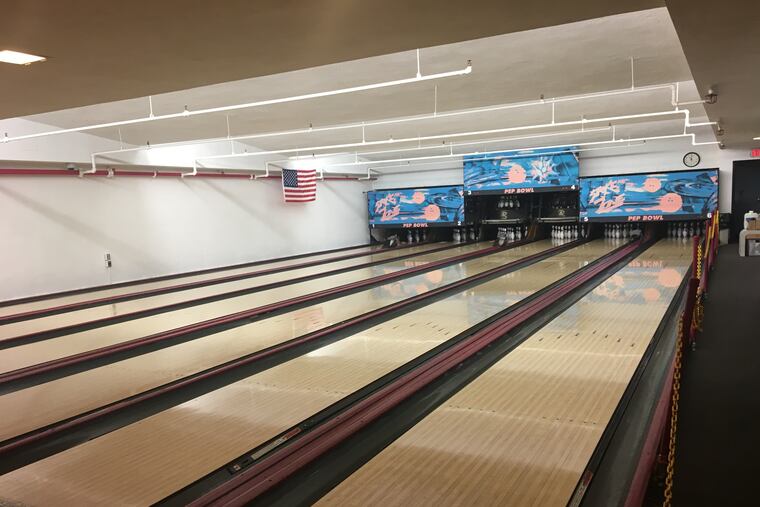Pep Bowl’s future is unclear as its South Philly building is up for sale
Sellers hope the new owners will preserve the basement bowling alley, but it’s not a sure thing.

Fans of Pep Bowl, the endearingly ramshackle bowling alley in a South Philadelphia basement, should get their games in now.
The modernist building that houses the beloved bowling alley was put up for sale last week by Programs Employing People (PEP), the non-profit that owns the structure and runs services for elderly residents and people with developmental disabilities.
“The agency is simply relocating, but one of the hopes is that the new organization that’s going to take over the building will keep Pep Bowl,” said Michael Tucker, executive director of PEP. “We see Pep Bowl as a selling point for the building, whether it’s turned into a condo, a school, or something else. However, that’s going to be up to them if they keep it.”
Tucker said that the organization was moved to sell by a shift in how and where they provide services. Historically, they ran programs in their 35,000-square-foot building at 1200 South Broad Street, which houses Pep Bowl in the basement and was originally commissioned by the the the Grand Lodge of the Pennsylvania Order of the Sons of Italy in America in the wake of World War II.
But over the last decade , Pennsylvania’s Office of Developmental Programs — which funds much of PEP’s work — has begun encouraging organizations to provide services in public spaces. They now take their clients with developmental disabilities on trips out in the community and, when it’s warmer, to public parks and trails.
As PEP transitioned more of their activities outside of the organization’s headquarters, they no longer require such a large building. Today, Tucker said they only use about 10,000 square feet.
In addition to paying utilities and insurance on space they no longer use, Tucker said the building needs renovations that his organization cannot afford. That’s partly because PEP’s funding got hammered by COVID: Before the pandemic they were supporting 155 people every day, and receiving the funds from the state to support that work.
By this point, almost three years after COVID’s initial outbreak in the United States, only 120 have returned.
“Like every service provider, if you’re not providing a service, you don’t get paid,” said Tucker. “Getting people back into supportive services remains difficult because we still have people who want to stay home. That’s what financially killed us.”
Tucker said the organization’s budget fell from $3 million to $1.5 million, while expenses at the building remain unchanged. To help tide them over, earlier this month State Representative Jordan Harris wrangled PEP a $133,000 pandemic response grant through the Department of Education.
“Think about the parents taking care of their adult child with an intellectual disability, they don’t want them to just sit in the house all day — they want them to be able to go out and have relationships,” said Harris. “PEP makes those things possible. With rising costs, we have to increase investments in these types of organizations.”
PEP will likely be in their Broad Street location for the rest of the year, and hope to stay in South Philly.
On Wednesday, a charter school operator toured PEP’s Broad Street location, but Tucker said it was far too early to say if the educational organization — which he did not name — would purchase the building.
As for Pep Bowl, he says the bowling alley is a revenue generator for his organization and could be the same for whoever takes over the building. Before the pandemic, after expenses, bowling rentals were bringing in $100,000 annually.
But the alley, which allows users to bring their own food and drinks, also hasn’t recovered from COVID. Now it is only bringing in about $84,000 after expenses, even as it hosts several bowling leagues.
When league play wraps up at the end of February, Pep Bowl is likely to cut back from a seven-day-week schedule to just five days.
“There are many nights that we close it early, because there’s just no one here,” said Tucker. “There are hours and hours where the staff are downstairs, but there’s nobody bowling. The overhead is starting to creep up, and the revenue is starting to creep down.”